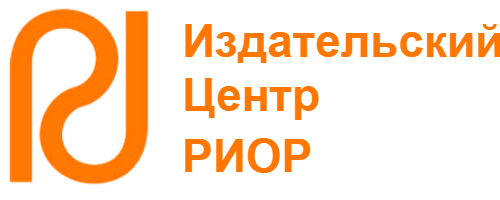The article discusses the possibility of recognizing artificial systems (artificial intelligence) as subjects of law. In the theory of law, the system of properties of a person characterizing him as a subject of law is designated by the concept of legal personality. Legal personality is a complex category that includes such elements as legal capacity, legal age, transaction capacity, etc. At the same time, the primary importance is given to legal capacity — the abstract possibility of having legal rights and obligations recognized by the state. However, in the case of artificial intelligence, before recognizing its legal capacity, it is necessary to establish that it has other elements of legal personality, i.e. its ability to independently exercise its rights, fulfill legal obligations and be responsible for the legality of its actions. The author comes to the conclusion that the level of development of existing artificial intelligence systems does not allow us to talk about the availability of bargaining power, delictworthiness and other properties necessary for the recognition of artificial intelligence as a subject of law.
artificial intelligence, legal personality, conscience, self-awareness, will, responsibility, the composition of the offense.
1. Alekseev S. S. Obschaya teoriya prava (v dvuh tomah). T. 2. M.: Yurid. lit., 1982. 354 s.
2. Amel'chakova V. N., Suslova G. N. Sootnoshenie viny i sub'ektivnoy storony administrativnogo pravonarusheniya // Vestnik Moskovskogo universiteta MVD Rossii. 2023. № 3. S. 23 — 26.
3. Burynin S. S. Ponyatie i struktura iskusstvennogo intellekta // IUS PUBLICUM ET PRIVATUM. 2021. № 2. S. 45 — 50.
4. Vitruk N. V. Osnovy teorii pravovogo polozheniya lichnosti v socialisticheskom obschestve. M.: «Nauka», 1979. 229 s.
5. Girenok F. I. Pochemu soznanie — eto ne intellekt? // Vestnik Moskovskogo universiteta. Seriya 7. Filosofiya. 2023. T. 47. № 2. S. 19 — 32.
6. Grazhdanskiy kodeks Rossiyskoy Federacii (chast' 1) ot 30 noyabrya 1994 g. (v red. ot 24 iyulya 2023 g.) № 51-FZ // Sobranie zakonodatel'stva RF. 1994. № 32. St. 3301; 2023. № 31 (chast' 3). St. 5777.
7. Kamyshanskiy V. P., Koreckiy A. V. Ponyatie i pravovoy status nositelya iskusstvennogo intellekta // Vlast' zakona. 2019. № 1. S. 42 — 50.
8. Laptev V. A. Ponyatie iskusstvennogo intellekta i yuridicheskaya otvetstvennost' za ego rabotu // Pravo. Zhurnal Vysshey shkoly ekonomiki. 2019. № 2. S. 79 — 102.
9. Lebedinec O. N. Grazhdanskaya pravosub'ektnost' (suschnost', znachenie, soderzhanie i elementy) // Yurist. 2003. № 9. S. 3 — 6.
10. Mansurov G. Z. Ponyatie i priznaki iskusstvennogo intellekta // Pravo i gosudarstvo: teoriya i praktika. 2023. № 11. S. 286 — 287.
11. Otvetyat li roboty za DTP // Kommersant'. 2024. 5 fevralya. URL: https:// www.kommersant.ru/doc/6493016 (data obrascheniya: 10.02.2024 g.).
12. Stremouhov A. A. Opredelenie i osobennosti special'nogo sub'ekta prava // Yurist. 2003. № 12. S. 2 — 5.
13. Ugolovnyy kodeks Rossiyskoy Federacii ot 13 iyunya 1996 g. (v red. ot 25 dekabrya 2023 g.) № 63-FZ // Sobranie zakonodatel'stva RF. 1996. № 25. St. 2954; 2024. № 1 (chast' 1). St. 22.
14. Ukaz Prezidenta Rossiyskoy Federacii ot 10 oktyabrya 2019 g. № 490 «O razvitii iskusstvennogo intellekta v Rossiyskoy Federacii» // Sobranie zakonodatel'stva RF. 2019. № 41. St. 5700.
15. Uporov I. V. Istochniki i ponyatie estestvennyh prav cheloveka // Teoriya i praktika sovremennoy nauki. 2016. № 3. S. 501 — 506.
16. Hvatova M. A. Doktrinal'noe ponyatie grazhdanskoy deesposobnosti fizicheskih lic // Fundamental'nye i prikladnye issledovaniya kooperativnogo sektora ekonomiki. 2013. № 6-1. S. 114 — 119.
17. Endryu Yn. Vozmozhnosti Iskusstvennogo Intellekta v 2023 godu // URL: https://www.habr.com/ru/companies/serverspace/articles/776954/ (data obrascheniya: 10.02.2024 g.).




